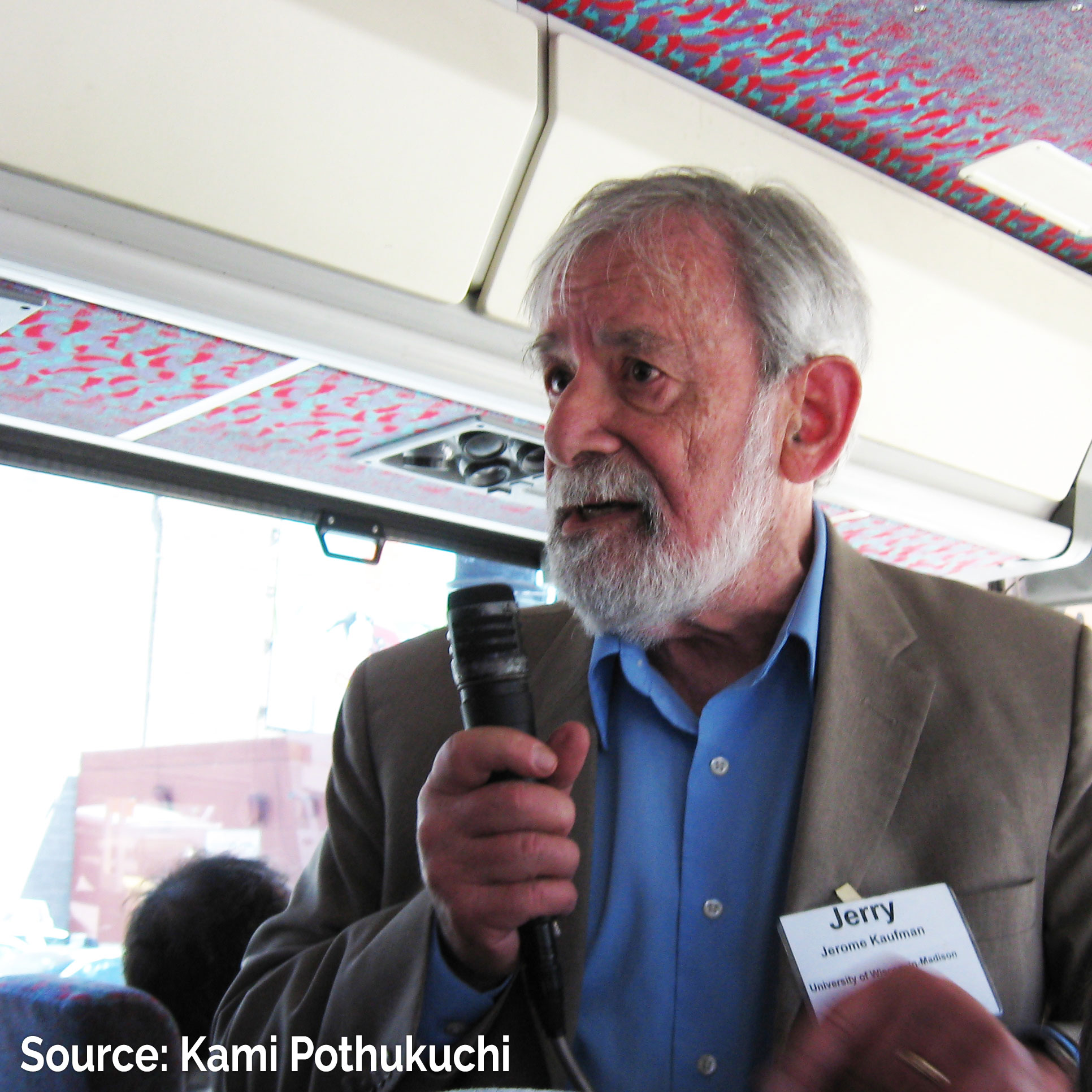Growing Food Connections (GFC) is dedicated to the intellectual legacy of Professor Jerome L. Kaufman, FAICP, who laid the foundation of food systems planning research, pedagogy and practice within the discipline of urban and regional planning.

Professor Jerome Kaufman
A visionary, Professor Jerome Kaufman (1933-2013) displayed a rare knack for raising questions about issues ahead of their time. He has left a lasting legacy in the area of food systems planning.
Kaufman made considerable and lasting contributions to the discipline and practice of urban planning. A visionary, Kaufman displayed a rare knack for raising questions about issues ahead of their time. His interests spanned planning ethics, urban education, strategic planning, central city planning, alternative dispute resolution, and his lasting legacy, the area of food systems planning.
Until the late 1990s, the food system, or the network of activities, stakeholders, resources, and institutions that deliver food from field to table, was largely absent from planning discussion. In 1996, Kaufman founded the Madison Food System Project. An early activity of the Project was a capstone seminar class he co-taught in Spring 1997 with Dr. Kami Pothukuchi, on urban food systems in the Department of Urban and Regional Planning at University of Wisconsin. The class produced one of the earliest reports on food systems planning, “Fertile Ground,” which informed subsequent efforts led by Kaufman and colleagues. With his collaborators, Kaufman mapped multiple ways in which municipal planning affects and is impacted by the food system.
During Kaufman’s retirement from his faculty position (2001-2013), considerable shifts occurred in the planning discipline. Because of his continued innovation and leadership during retirement, the American Planning Association (APA) issued the Policy Guide on Community and Regional Food Planning (Kaufman, J., K. Pothukuchi, and D. Glosser. 2007) and a growing number of local governments adopted plans to guide their communities’ food systems to a healthier future.
As evident through the GFC initiative, research, education, and policy pertinent to food systems have advanced considerably. Numerous planning programs in the US offer courses on food systems planning; the American Planning Association now has a Food Division; and, a growing number of scholars focus on food systems. Some of these shifts are documented in Planning for Equitable Urban Agriculture, a book dedicated to Kaufman’s legacy and written by more than 50 authors influenced by Kaufman.
